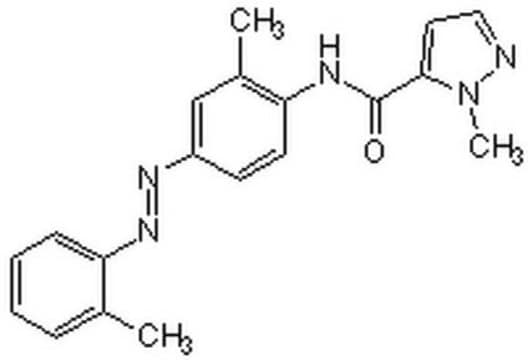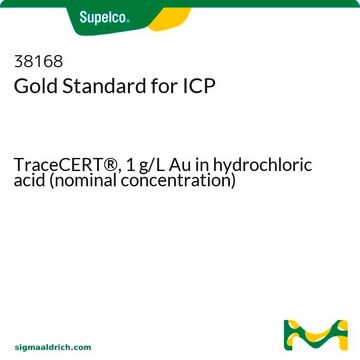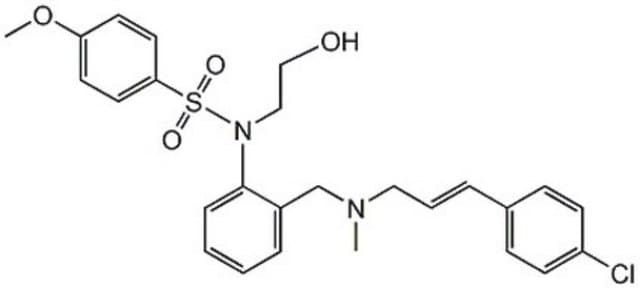E2279
Monoclonal Anti-Endonuclease VIII antibody produced in mouse
~1.5 mg/mL, clone E8-122, purified immunoglobulin, buffered aqueous solution
Synonym(s):
Monoclonal Anti-Endo VIII
About This Item
WB
western blot: 10-20 μg/mL using recombinant endonuclease VIII (Cat No. E0651)
Recommended Products
biological source
mouse
Quality Level
conjugate
unconjugated
antibody form
purified immunoglobulin
antibody product type
primary antibodies
clone
E8-122, monoclonal
form
buffered aqueous solution
mol wt
antigen ~30 kDa by SDS-PAGE
species reactivity
E. coli
concentration
~1.5 mg/mL
technique(s)
indirect ELISA: suitable
western blot: 10-20 μg/mL using recombinant endonuclease VIII (Cat No. E0651)
isotype
IgM
shipped in
dry ice
storage temp.
−20°C
target post-translational modification
unmodified
General description
Specificity
Immunogen
Application
Biochem/physiol Actions
Physical form
Storage and Stability
Disclaimer
Not finding the right product?
Try our Product Selector Tool.
Storage Class Code
12 - Non Combustible Liquids
WGK
nwg
Flash Point(F)
Not applicable
Flash Point(C)
Not applicable
Choose from one of the most recent versions:
Certificates of Analysis (COA)
Don't see the Right Version?
If you require a particular version, you can look up a specific certificate by the Lot or Batch number.
Already Own This Product?
Find documentation for the products that you have recently purchased in the Document Library.
Our team of scientists has experience in all areas of research including Life Science, Material Science, Chemical Synthesis, Chromatography, Analytical and many others.
Contact Technical Service

![Benzo[a]pyrene-d12 98 atom % D](/deepweb/assets/sigmaaldrich/product/structures/962/892/b867e1bb-083c-4337-b499-36eae87f40ad/640/b867e1bb-083c-4337-b499-36eae87f40ad.png)




